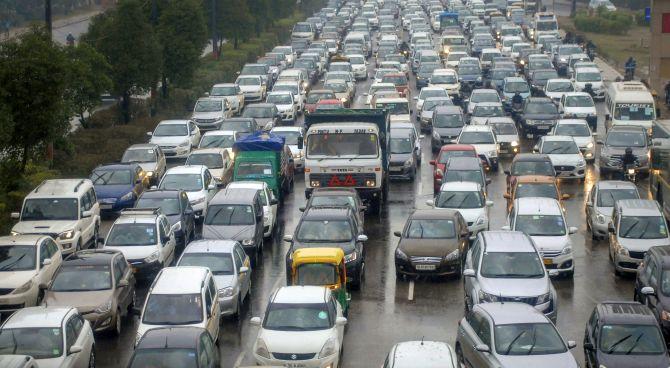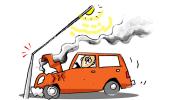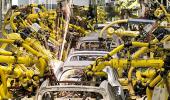Weak consumer sentiment across urban and rural markets due to slow farm inflows, subdued agri-commodity prices, rising cost of ownership as a result of regulatory changes including safety, emissions, vehicle registration, along with a rise in interest cost/EMI, have impacted demand.

Passenger vehicle sales in India is likely to decline in the range of 4-7 per cent this fiscal saying agricultural output, revival in economic and industrial growth would be critical for auto sector's growth despite recent government measures to rekindle demand.
The auto industry has already registered a 21.6 per cent plus de-growth in the first four months of 2019-20, ICRA said adding in the short-term, prevailing subdued rural and urban sentiments would matter besides the upcoming BS-VI emission norms.
"As per ICRA's analysis of the auto sector, the likely decline in passenger vehicles is estimated to be in the range of 4-7 per cent and 0-5 per cent decline for M&HCV trucks in FY2020," the rating agency said in a statement.
The auto industry has been grappling with a tough time since the beginning of the second quarter of FY2018-19 and growth has slowed down, it added.
Weak consumer sentiment across urban and rural markets due to slow farm inflows, subdued agri-commodity prices, rising cost of ownership as a result of regulatory changes including safety, emissions, vehicle registration, along with a rise in interest cost/EMI, have impacted demand.
Moreover, tight liquidity situation among financiers, banks and especially NBFC segment; revision in axle load norms, a slowdown in government spending on infrastructure and; uncertainty related to selection between BS-IV versus BS-VI among buyers, have also played roles in the slowdown, ICRA said.
Commenting on the outlook for the sector, ICRA senior group vice president Subrata Ray said, "In the short-term, much would depend on the meaningful demand recovery post monsoons, especially given the fact that many parts of the country have witnessed flooding.
“Agricultural output, revival in economic and industrial growth would be critical."
It, however, remains to be seen how the auto demand recovers during the festive season and likely pre-buying in Q4 FY2020, in anticipation of post BS VI price hikes, he added.
Stating that the recent steps announced by the government are positive for the sector, Ray said, "The liquidity support announced for the banking system and government spend on infrastructure can be a significant catalyst for the automotive industry."
In the long-term, the demand drivers would be increasing disposable income, poor public transport infrastructure and increasing financing penetration in India, especially in urban and semi-urban areas, he added.
On the two-wheelers front, ICRA said growth will be contingent upon the introduction of BS VI across all models from April 1, 2020, which will lead to price increases across the industry.
"Therefore, the quantum of price hikes will be determined by the prevailing market sentiments and overall market dynamics," it added.
Overall, ICRA said it estimates the industry capex expenditure to be around Rs 5,000-6,000 crore to be largely incurred towards upgradation of existing platforms, new models and BS VI.
"The outlook for the industry is stable. Going forward, credit profile of most OEMs will continue to remain stable owing to modest leverage and strong liquidity position," it added.
Ray said in the short-term, prevailing subdued rural and urban sentiments would matter besides the upcoming regulatory changes regarding emission (BS VI) norms.
"Whereas the long-term challenges pertain to high investment requirements for technological advancement, lack of policy consensus for EV adoption and increasing traffic congestion in urban areas which may lead to unforeseen regulatory changes," he added.
Photograph: PTI Photo











 © 2025
© 2025